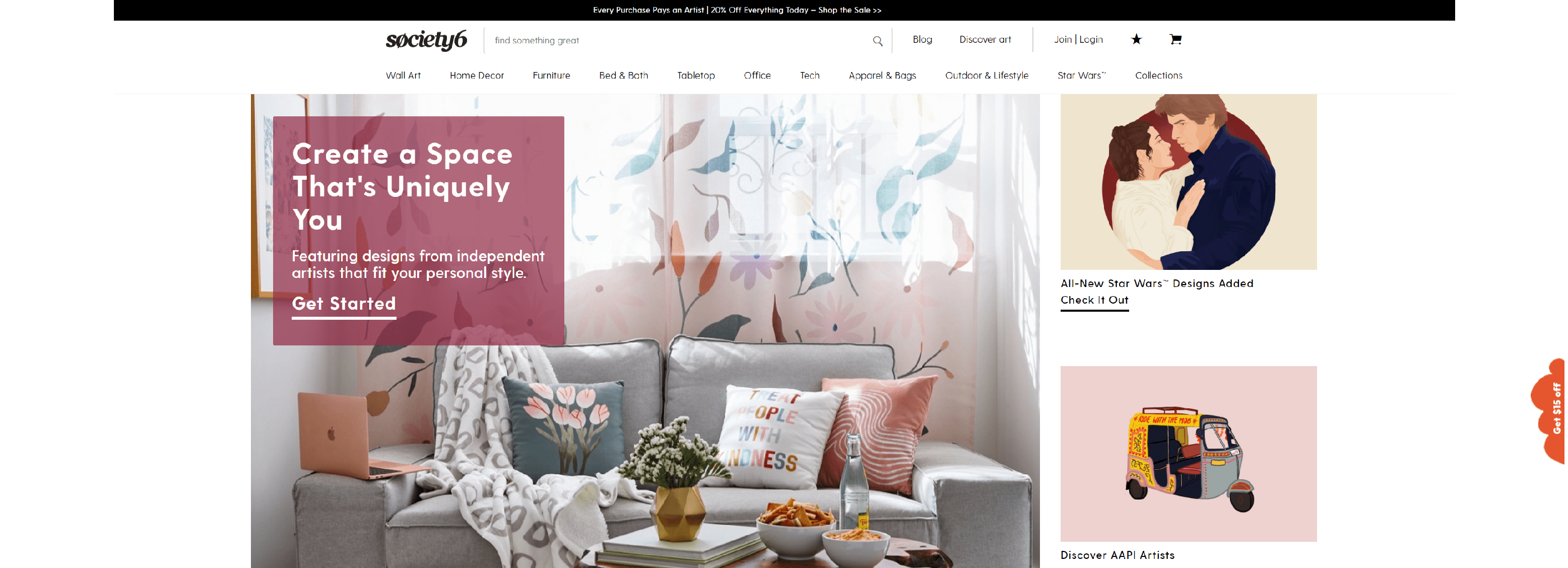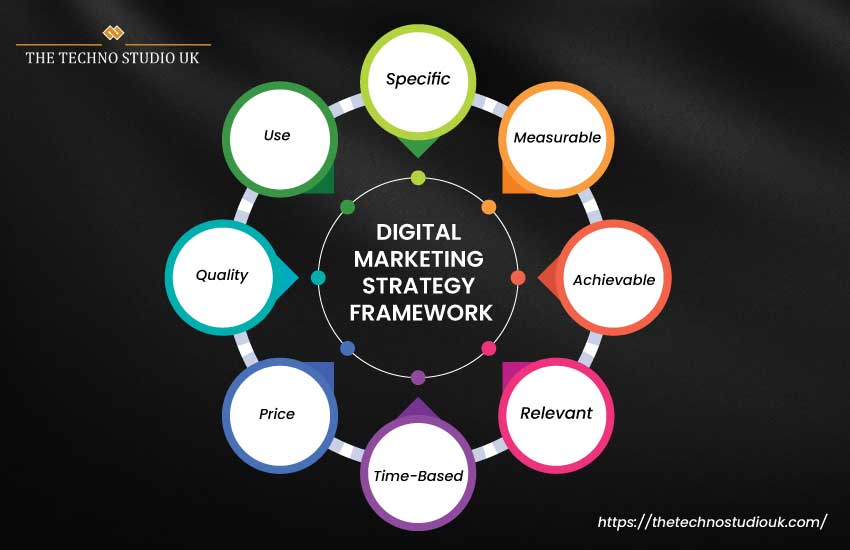Navigating The Digital Landscape: The Best Online Marketplaces For Home Decor Sales
Navigating the Digital Landscape: The Best Online Marketplaces for Home Decor Sales
Related Articles: Navigating the Digital Landscape: The Best Online Marketplaces for Home Decor Sales
Introduction
With enthusiasm, let’s navigate through the intriguing topic related to Navigating the Digital Landscape: The Best Online Marketplaces for Home Decor Sales. Let’s weave interesting information and offer fresh perspectives to the readers.
Table of Content
Navigating the Digital Landscape: The Best Online Marketplaces for Home Decor Sales

The home décor market is a vibrant and lucrative industry, and the digital realm has opened up unprecedented opportunities for sellers to reach a wider audience and grow their businesses. With a multitude of online platforms vying for attention, selecting the ideal marketplace for your home décor products requires careful consideration. This article provides a comprehensive guide, analyzing the strengths and weaknesses of popular online platforms, empowering sellers to make informed decisions and maximize their sales potential.
Understanding the Landscape: Key Considerations for Choosing an Online Marketplace
Before delving into specific platforms, it is crucial to establish a clear understanding of the factors that influence the success of selling home décor online. These include:
- Target Audience: Identifying your ideal customer is paramount. Consider their demographics, interests, and purchasing habits. Different platforms cater to specific demographics, so understanding your target audience will guide your platform selection.
- Product Type: The nature of your home décor products will influence the best platforms. For example, handcrafted items may thrive on Etsy while mass-produced furniture may be better suited for Amazon.
- Pricing and Commission Fees: Platforms charge varying commission fees and have different pricing structures. Carefully analyze these costs to ensure profitability.
- Marketing and Promotion: The platform’s marketing tools and advertising options will impact your ability to reach potential customers.
- Customer Service and Support: Reliable customer service and support are essential for building trust and resolving issues.
- Brand Alignment: Ensure that the platform’s brand image aligns with your own. Consider the overall aesthetic and target audience of the platform.
Popular Online Marketplaces for Home Décor: A Detailed Analysis
1. Etsy:
- Strengths: Etsy is a haven for handmade and vintage items, attracting a passionate community of buyers seeking unique and handcrafted home décor. The platform’s focus on authenticity and craftsmanship allows sellers to showcase their artistry and connect with like-minded customers.
- Weaknesses: Etsy’s commission fees can be relatively high, and the platform’s focus on handmade and vintage items may limit the scope for selling mass-produced home décor.
- Target Audience: Etsy attracts buyers who value uniqueness, craftsmanship, and sustainability. It is particularly popular among millennials and Gen Z, who are increasingly interested in supporting independent artists and makers.
2. Amazon Handmade:
- Strengths: Amazon Handmade offers the benefits of Amazon’s vast customer base and robust infrastructure. Sellers can leverage Amazon’s established brand recognition, extensive marketing tools, and efficient fulfillment options.
- Weaknesses: Amazon Handmade requires sellers to adhere to strict quality standards and may have higher commission fees compared to other platforms.
- Target Audience: Amazon Handmade attracts a broad audience, encompassing Amazon’s diverse customer base. However, it may be less focused on handcrafted items compared to Etsy.
3. eBay:
- Strengths: eBay is a well-established platform with a vast global reach, allowing sellers to tap into a diverse pool of potential customers. Its auction format can generate excitement and drive sales.
- Weaknesses: eBay’s commission fees can be competitive, and the platform’s focus on auctions may not be suitable for all home décor products.
- Target Audience: eBay attracts a wide range of buyers, from bargain hunters to collectors, making it a suitable platform for various home décor products.
4. Wayfair:
- Strengths: Wayfair is a leading online retailer specializing in home furnishings and décor, offering sellers access to a large and established customer base. It provides competitive commission fees and efficient fulfillment options.
- Weaknesses: Wayfair’s focus on furniture and home furnishings may limit the scope for selling smaller home décor items.
- Target Audience: Wayfair attracts customers seeking furniture, home accents, and décor for their homes, making it a suitable platform for sellers offering a wide range of home décor products.
5. Houzz:
- Strengths: Houzz is a popular platform for home renovation and design inspiration, attracting a targeted audience of homeowners seeking design ideas and products. Its focus on home improvement and design provides sellers with an opportunity to showcase their products within a relevant context.
- Weaknesses: Houzz’s commission fees can be higher compared to other platforms, and its focus on home improvement and design may not be suitable for all home décor products.
- Target Audience: Houzz attracts a highly engaged audience of homeowners and design professionals seeking inspiration and products for their home projects.
6. Pinterest:
- Strengths: Pinterest is a visual platform that allows sellers to showcase their home décor products in an engaging and inspiring manner. Its focus on visual content and inspiration makes it an ideal platform for promoting home décor products.
- Weaknesses: Pinterest is not a traditional e-commerce platform, so sellers need to integrate their shop with Pinterest or use other platforms to facilitate sales.
- Target Audience: Pinterest attracts a highly visual audience, primarily women, who are interested in home décor, fashion, and lifestyle inspiration.
7. Instagram:
- Strengths: Instagram is a popular social media platform that allows sellers to connect with potential customers and build brand awareness. Its visual nature makes it an ideal platform for showcasing home décor products.
- Weaknesses: Instagram is not a traditional e-commerce platform, so sellers need to integrate their shop with Instagram or use other platforms to facilitate sales.
- Target Audience: Instagram attracts a diverse audience, but its strong focus on visual content makes it particularly effective for promoting home décor products.
8. Facebook Marketplace:
- Strengths: Facebook Marketplace allows sellers to reach a large and local audience, providing an opportunity to connect with potential customers in their area. Its integration with Facebook makes it easy for sellers to promote their products to their existing network.
- Weaknesses: Facebook Marketplace is primarily a local marketplace, so it may not be suitable for sellers targeting a wider audience.
- Target Audience: Facebook Marketplace attracts a diverse audience, including those seeking local deals and unique finds.
9. Shopify:
- Strengths: Shopify is a powerful e-commerce platform that provides sellers with full control over their online store. It offers a wide range of features, including website customization, payment processing, and marketing tools.
- Weaknesses: Shopify requires a monthly subscription fee, and sellers are responsible for managing all aspects of their online store.
- Target Audience: Shopify is suitable for sellers who want to build a professional online presence and have a strong understanding of e-commerce.
10. Cratejoy:
- Strengths: Cratejoy is a subscription box platform that allows sellers to offer curated home décor boxes to customers. This subscription model provides a consistent revenue stream and fosters customer loyalty.
- Weaknesses: Cratejoy is specifically designed for subscription boxes, so it may not be suitable for sellers offering individual home décor products.
- Target Audience: Cratejoy attracts customers who enjoy receiving curated boxes filled with surprises and unique products.
Frequently Asked Questions (FAQs) about Selling Home Décor Online
Q: What are the best tips for photographing home décor products for online sales?
A: High-quality product photography is essential for online sales. Aim for clear, well-lit images that showcase the product’s details and appeal. Consider using a neutral background, natural light, and a tripod for stability.
Q: How can I effectively market my home décor products online?
A: Utilize a combination of strategies, including social media marketing, content marketing, email marketing, and paid advertising. Create compelling content that showcases your products in a visually appealing and inspiring manner.
Q: What are the legal considerations for selling home décor online?
A: Ensure you comply with all relevant laws and regulations, including intellectual property rights, product safety standards, and consumer protection laws.
Q: How can I build trust and credibility with potential customers?
A: Provide detailed product descriptions, high-quality images, and positive customer reviews. Offer excellent customer service, respond promptly to inquiries, and handle returns and exchanges efficiently.
Tips for Success in Selling Home Décor Online
- Offer Unique and High-Quality Products: Stand out from the competition by offering unique and high-quality home décor products that meet the needs and desires of your target audience.
- Craft Compelling Product Descriptions: Engage customers with detailed and descriptive product descriptions that highlight the product’s features, benefits, and unique selling points.
- Leverage Social Media: Utilize social media platforms to showcase your products, connect with potential customers, and build brand awareness.
- Run Targeted Advertising Campaigns: Utilize paid advertising platforms to reach specific demographics and interests, driving traffic to your online store.
- Provide Excellent Customer Service: Respond promptly to inquiries, resolve issues efficiently, and build strong relationships with your customers.
Conclusion
The digital landscape offers a wealth of opportunities for home décor sellers to reach a global audience and grow their businesses. By carefully analyzing the strengths and weaknesses of different online platforms, understanding your target audience, and implementing effective marketing strategies, sellers can navigate the complexities of the online market and achieve success in the vibrant world of home décor.



![]()




Closure
Thus, we hope this article has provided valuable insights into Navigating the Digital Landscape: The Best Online Marketplaces for Home Decor Sales. We thank you for taking the time to read this article. See you in our next article!
You may also like
Recent Posts
- Navigating The World Of Home Decor Software: A Comprehensive Guide
- The Power Of Visual Transformation: A Deep Dive Into Before And After Images
- The Art Of The Vase: Elevating Home Decor With Timeless Elegance
- Reclaiming Rustic Charm: The Enduring Appeal Of Barn Wood Home Decor
- Elevating Your Home: A Guide To Selecting The Perfect Paintings For Decor
- Reimagining The View: A New Era Of Interior Design
- Arcus Home Decor Inc
- Moradabad: A Legacy Of Artistic Craftsmanship In Home Decor
Leave a Reply